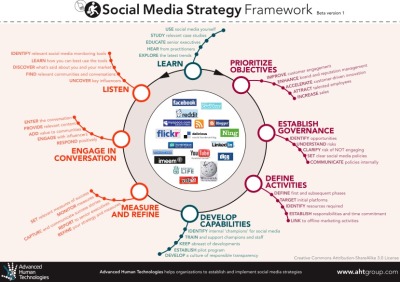In the recent issue of Research Information: October/November 2009 David Stuart writes an article entitled Web 2.0 fails to excite today’s researchers. The basic premise of the article is that researchers within academia are not interesting in adopting web2.0 technologies.
It is hard to imagine a group more suited to the opportunities of Web 2.0 technologies than academics, especially when it comes to conducting and publishing research…
…Scholarly publishing 2.0 offers much more to the research process than the simple content management system of blogs and wikis. It does not just give the opportunity to help find collaborators for a project, and possibility of easing the communication process within a research group. It also offers the opportunity to publish new forms of data and can blur the barriers of the research group.
While reading the article I found myself disagreeing more and more with Stuart. The level of academics participating actively by sharing their time and knowledge freely is very high.
There are two reasons why this high level of activity is surprising. One is based on the fact that only a small part of science is about communication and second the academic’s employers do not appreciate the value of web2.0 activities.
Science is more than communication: Most of science work is outwardly boring. Observing, reading, thinking, writing and deep discussions in seminars are not particularly for suitable for short messages and headline based communication. A wonderful example can be found in the words of Donald Knuth in a text entitled Knuth versus Email:
I have been a happy man ever since January 1, 1990, when I no longer had an email address. I’d used email since about 1975, and it seems to me that 15 years of email is plenty for one lifetime.
Email is a wonderful thing for people whose role in life is to be on top of things. But not for me; my role is to be on the bottom of things. What I do takes long hours of studying and uninterruptible concentration. I try to learn certain areas of computer science exhaustively; then I try to digest that knowledge into a form that is accessible to people who don’t have time for such study.
The same ideas can be applied to web2.0.
Few academic employers appreciate the value of web2.0 activities: In the final paragraph Stuart writes “Much of the blame for the slow adoption of the Web 2.0 technologies seemingly lies with an over-emphasis on the traditional research paper.” Well this is understandable since despite the whole focus and popularity of web-based communication the academic system does not put any real priority on these activities. True, they are not looked down upon as much as they once were but web2.0 communication is definitely not an activity which counts as a merit.
What Stuart seems to be missing is that web2.0 activity use is high in academia, but, for the reasons discussed above, it is not particularly visible to the general observer. Academic blogs, wikis, twitterers etc. abound but they are used as intended – for communication, sharing and discussion. The problem is that the discussions of academics are rarely interesting enough to be noticeable to the outside world.
—
Disclaimer: My web2.0 activity is very high (2 blogs (this one and techrisk), facebook, twitter, flickr, librarything etc And I follow tons of people via web2.0) and is very rewarding for me personally and professionally. But I also know that six years of blogging is worth less than one paper. This is mainly because it is easier for a university to count papers and citations.


